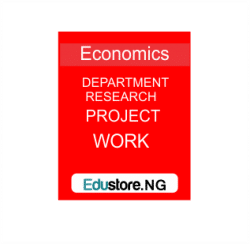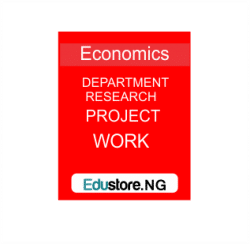ABSTRACT
This study was motivated by the growing concern on the impact of Institutional Quality on economic outcomes. The study focused specifically on the Nigerian Stock Market due to its critical role in the economy as a vehicle for efficient resource allocation. The Autoregressive Distributed Lag (ARDL) bounds testing procedure is employed using data from 1985 to 2012. The study used the ARDL model to ascertain the long-run impact of institutional quality on stock market development in Nigeria. The results from Empirical analysis of level of corruption, democratic accountability and bureaucratic quality exert significant impacts on stock market development as measured by market capitalisation ratio. Also, Banking sector development and stock market liquidity contribute significantly to stock market development. Moreover, a unidirectional causality runs from institutional quality to stock market development. The study therefore, recommends that the fight against corruption should be intensified while the market administrative and regulatory qualities should be enhanced for a sustainable stock market development in Nigeria.
Keywords: Institutional Quality, Stock market, development, Market capitalisation ratio, corruption, democratic accountability, bureaucratic quality.
DOWNLOAD COMPLETE WORK
DISCLAIMER:
- For Reference Only: Materials are for research, citation, and idea generation purposes and not for submission as your original final year project work.
- Avoid Plagiarism: Do not copy or submit this content as your own project. Doing so may result in academic consequences.
- Use as a Framework: This complete project research material should guide the development of your own final year project work.
- Academic Access: This platform is designed to reduce the stress of visiting school libraries by providing easy access to research materials.
- Institutional Support: Tertiary institutions encourage the review of previous academic works such as journals and theses.
- Open Education: The site is maintained through paid subscriptions to continue offering open access educational resources.





